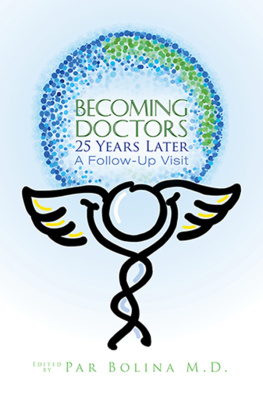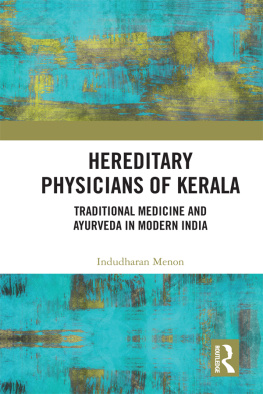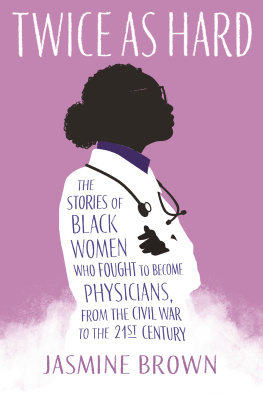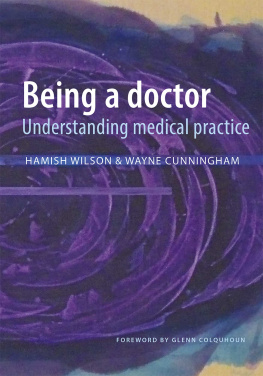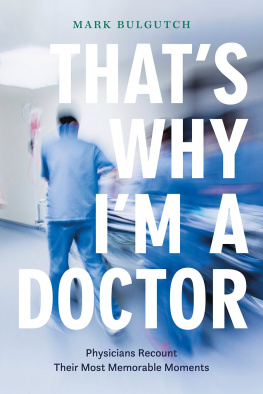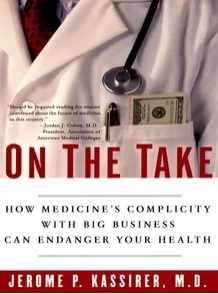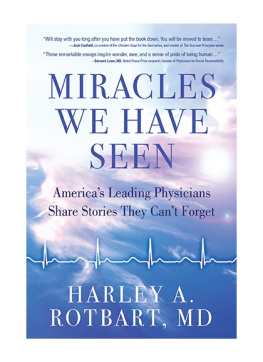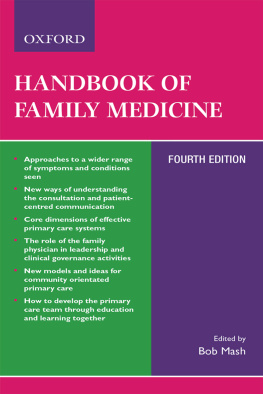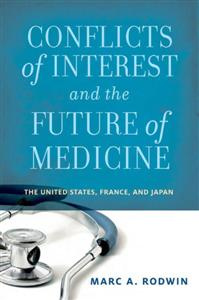Par Bolina, born in London in 1970, relocated to Chicago in 1979. He later graduated from the University of Illinois at Chicago College of Medicine in 1996. During his time in medical school, he edited and published Becoming Doctors , an anthology written by ninety-one medical students from over fifty medical schools across the United States. After completing his residency training in Massachusetts, he relocated to Nashville, Tennessee, to work as an internist. By 2010, his interest in improving patient and clinician experience initially led him to become a chief medical informatics officer at one of the nations largest nonprofit health systems and later as chief innovation officer in the private sector. Presently, he continues to develop new methods and workflows for clinicians and patients to deliver and receive better, safer care.
I owe a debt of gratitude to countless authors who introduced me to so many remarkable characters who served as teachers, mentors, and role models. Over a lifetime of reading books and stories, these characters influenced my purpose, values, and decision making. Alongside my parents, the characters in those books are my most reliable source of inspiration and courage.
I am deeply grateful to the original ninety contributors of Becoming Doctors and especially grateful to the twenty-four contributors of this book. Among this group, Dr. Sue Rhee has our collective gratitude for creating such a wonderful cover illustration reflecting our aspirations and struggles as physicians. Equally critical to the success of this endeavor was the immeasurable contribution of Angie Wilson. As in most success stories, a chance meeting plus a sense of adventure accompanied by courage, trust, effort, and perseverance led to our collaboration and friendship without which this sequel anthology would not have been possible. I also wish to thank Larry Carpenter and Shane Crabtree and the entire team at Clovercroft Publishing for their valuable guidance. Finally, I wish to thank my sisters and closest friends for their support and encouragement on these two journeys.
My hope is that these words capture the depth of my gratitude for those mentioned and to the many more left unmentioned. Whether new or old, friendship is a powerful force that enables wonderful outcomes.
Par Bolina
After enjoying extraordinary prosperity for over half a century, humanity is collectively experiencing the first world war of the twenty-first century. One that is challenging the global population, its clinical soldiers and scientists, and our way of life. The pandemic of 2020 serves as a humbling reminder of our limitations and vulnerabilities as we mount a response to the crisis.
Fortunately, the investment placed in science, technology, and medicine by generations before us has enabled us to rapidly develop vaccinations and treatments that may avert global catastrophe. If this crisis passes with limited death and destruction, our commitment to science and knowledge, peace and collaboration, and openness and transparency will perhaps be deeper and broader than ever before. Over centuries and millennia, such victories of human ingenuity add to the compelling body of evidence supporting diversity of thought and equality in opportunity as key contributors to innovation and prosperity for all.
Now, in an unusual sequel anthology, we present a more personal example of diversity of thought and equality of opportunity as reflected in the journey of twenty-five physicians. We first met them twenty-five years ago when they shared their stories and experiences of being medical students in the book Becoming Doctors. After studying at Brown, Cornell, Emory, Johns Hopkins, Stanford, Yale, and a dozen more medical schools, these doctors went on to become emergency medicine physicians, family practitioners, gynecologists, internists, obstetricians, pediatricians, psychiatrists, and surgeons across the United States. Today, while working alongside the clinical soldiers and scientists protecting our friends and neighbors from this pandemic, they share their personal insights of learning, practicing, and teaching medicine over the past twenty-five years. Their essays, stories, drawings, and poems form this unique anthology, capturing their aspirations and struggles as students and their challenges and successes as physicians, parents, and teachers.
Over the last three decades since they decided to become doctors, these physicians tell us of the gratification, joy, and fulfillment of their work coupled with their experiences of uncertainty, fear, and disappointment. They share how their professional responsibilities impact their personal lives while caring for their patients and how living up to the expectations of their colleagues and community often conflicts with the needs of their family.
Through their words, we hear the personal toll becoming a doctor has taken. Yet, regardless of diversity in gender, faith, or race, these doctors embrace healing even when they may be suffering, teaching even as they continue their learning and reassuring even as they seek better methods, ideas, and solutions. Not surprisingly, when asked whether they would make the same career choice or whether they would recommend a career in medicine for their children, they reaffirm the decision to become doctors. Perhaps such predictability is best explained by an innovative thinker and gracious teacher from the past century, Albert Einstein, who said, Only a life lived for others is a life worthwhile. Given the opportunity, these physicians have done just that.
Par Bolina, M.D.
Editor
Ten weeks down in my surgery clerkship, two to go. I am so beat, so exhausted that I cant even walk fast anymore. Traversing the parking lot on the way into the hospital today seemed like crossing the steppe, and I staggered twice as I labored to reach my once-a-week primary care clinic. Normally, anything that gets me away from the drudgery of the OR is anticipated, but by now, I am so whipped that just arriving at clinic is a monumental effort. The depths of my fatigue have reached the point where I am too tired to complain. I stare blankly at friends who wish me well in the elevator, trying to place them. I fall asleep at home with the lights blazing and the doors unlocked. If we get an admission after four, I want to cry, but I cant muster up the energy.
Here she is, our little bundle of joy, one of the residents says as I shuffle into the conference room. The medical interns are tired too, but largely happydrinking gourmet coffee out of paper cups from the hospitals upscale croissant joint, crossing off the days tasks on their lists, and conferring by phone with the specialists who are seeing their patients in consultation. They have interesting jobs; they dont have to stand stock-still for six hours at a time hauling on a slippery retractor and trying to recall how many days ago their last meal was. After I plop into one of the straight-backed chairs at the conference table, they go on telling the story they had started about a patient in the unit who developed ICU psychosis and got as far as the automatic doors but couldnt figure out how to open them by pressing the plate on the wall. It was change of shift, the second year says. All the nurses were eating coffee cake in the lounge. It was the maintenance man who noticed he was flying the coop. They all laughyoung, vital people in their twenties who have chosen to postpone the rest of their lives so they can prevent crazy nutcakes from leaving the unit at midnight.
Your first patient is here, one of the medical assistants tells me, tossing the chart on the table in front of me. It is large and very thick, a patient I havent seen before. It figures. I was kind of hoping everyone would just cancel today. I consider opening the chart and trying to read about this person who is waiting for me, but the task seems too monumental. Oh. I cant even come up with an expletive good enough to convey my state of mind. God, I wind up sighing.

